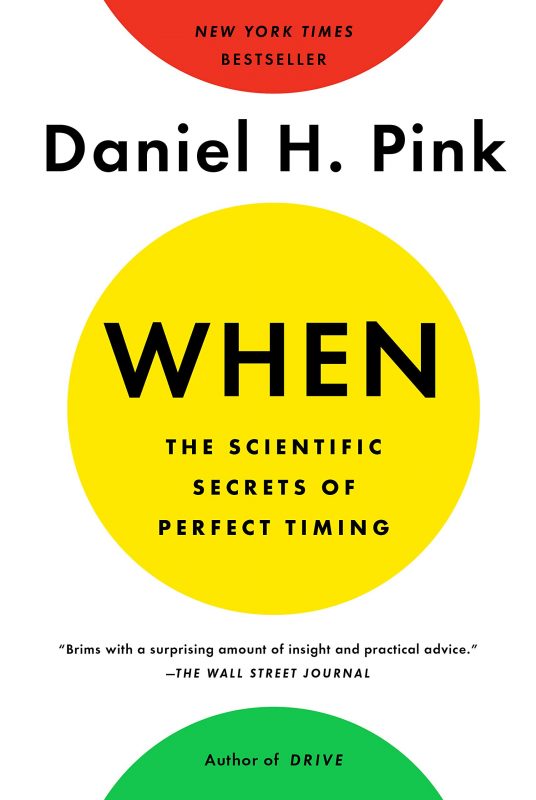While plenty of books tell people what to do and how to do it, not many tell you when to do it.
Timing is more important than people think, says New York Times best-selling author Daniel H. Pink. Pink recently spoke about his newest book, When: The Scientific Secrets of Perfect Timing, as part of an event organized by Social Driver and hosted at the Washington DC Economic Partnership. The event also helped to raise awareness about LearnServe International, a nonprofit organization that equips high school students with the entrepreneurial and leaderships skills needed to tackle social challenges at home and abroad.
Drawing on volumes of research from psychology, biology, neuroscience and economics, Pink examines several questions:
- When should we change jobs?
- How can we use the hidden pattern of the day to build the ideal schedule?
- How can we turn a mediocre beginning into a fresh start?
Pink says that research shows the time of day we do things matters significantly because the pattern of day affects our mood and performance. Based on research, he says people tend to move through the day in three stages: a peak, trough, and recovery.
- Peak: During this stage, people are at their optimum level of performance and this is when most people should perform high-priority tasks that require focus, such as writing or analytical functions.
- Trough: During this stage when energy levels drop and people are not as mentally alert, people should perform activities that don’t require as much concentration, such as checking emails, scheduling appointments, and other routine and administrative duties.
- Recovery: During this stage, people tend to be more creative, so it’s best to do activities that require a creative mindset, such as brainstorming.
There is also a pattern of mood that follows this direction, which impacts businesses both from an employee standpoint as well as financially. For example, about 80 percent of people have an elevated mood in the morning, which tends to drop in the afternoon, and then rises again later in the afternoon/evening. “Night owls” or individuals who are active and more productive at night, however, move in the opposite direction and hit their peak in the afternoon or evening.
On the financial front, researchers took transcripts from 26,000 earnings calls conducted over 6.5 years, placed them into a software that measures the emotional content of the words, and found that calls conducted in the afternoon were more negative and people were more irritable, regardless of the financial numbers being reported.
Pink acknowledges not everyone has control over scheduling their work during the time of day they are most productive. However, he offers practical tips, such as taking breaks, that we can incorporate into our schedules to help increase our productivity.
The key takeaway from Pink’s presentation: We focus too much in our lives on what are we going to do and how are we going to do it when we should be focusing on the when, which is backed by science.


